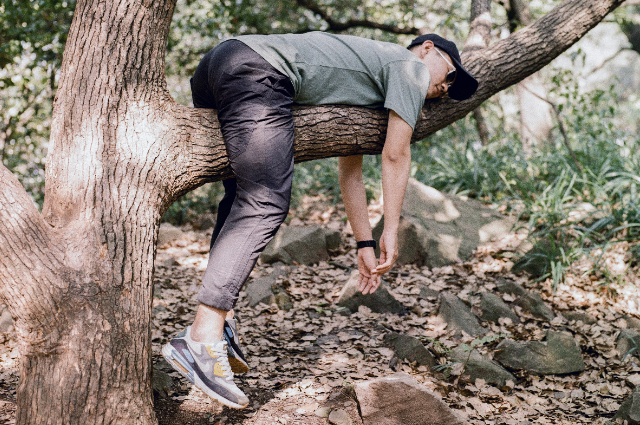
Laziness, if used properly, can increase our productivity. How? Bill Gates said,” I would choose the lazy person to do a hard job because a lazy person can find easier ways to do it”. This shift in thinking leads to innovative solutions and processes that save time.
It's not just a theory. Imagine a village where everyone is busy with their work in the hustle and bustle. There is a young man who is sitting under the shade of a tree and observing the world around him in leisure. Guess who the person is, the hint is it's an apple tree, now you can relate, the person’s name is Newton. While resting under the shade of an apple tree, an apple fell and landed on his head. Instead of brushing it off, he went for work immediately just because he wondered why the apple fell straight down at his head, and not in any other direction. This simple observation sparked a chain of thoughts in his mind that led him to form the laws of motion and the law of universal gravitation, and it led to more and more scientific discoveries in history. So, like this, Newton's story of a falling apple makes some metaphor for the positive aspects of leisure. In this way, a groundbreaking theory was created that completely changed people's views on science.
So, laziness can create a sense of balance as well in our lives. It encourages us to reflect on our priorities sometimes by being lazy; we gain a better perspective of life, allowing us to appreciate the journey as much as the destination.
Imagine a real-life scenario we all have gone through. Suppose you are doing something that needs concentration. Let’s assume you are studying. Suddenly, a thought hits your mind. Here is where the game starts. Thinking about that thought, you jump to a second thought, then a third thought then a fourth thought and so on, and like this collecting your dots with ideas, you form a chain of thoughts that leads you to a completely different topic at the end and when you wake up from your virtual world because of some noise or some other disturbance, you and even able to recall what your first thought was, this is what our thinking process leads us to. Research proves the fat that unproductive time helps us to manage our stress more efficiently.
Suppose you are studying Maths, and stuck on a question, let’s say integration, and you are getting the wrong answer. You have rechecked it again and again but cannot find out the mistake. In frustration, you give up and leave it for next time. Now after two days, you tried that question again and this time you solved it in the first attempt, how?? You realise you were writing Integration of cosx as -sinx which should be +sinx. This is how being lazy for two days worked.
So, laziness is considered an art that is forgotten. Being lazy, you at rest, can plan or work on unearthly ideas.
Suppose you are on a long train journey of about 12 hours. You have plenty of unproductive time where you are meeting new people and also gain new experiences in every new city. Long train journeys can be good if you make them that way.
We all use technologies like mobile phones and social media, this is one of the reasons we are lazy, even if we want to order food online, By using technology, it is easier for us to contact someone far away, these innovative technologies came to our mind because we want to be lazy. So, laziness is not always bad for us.
But the most important thing is, to make laziness work for you, you need to put some of your efforts into it.
Picture yourself as someone who enjoys the great outdoors but prefers a more relaxed approach to hiking. Your friends playfully tease you for your laid-back attitude, dubbing you the "easy-going explorer." However, you decide to embrace this title and make your relaxed nature help you during outdoor adventures.
One sunny weekend, you plan a hiking trip with friends to a nearby nature reserve. Understanding that strenuous hikes aren't your cup of tea, you opt for a scenic trail with gentle slopes and picturesque views.
Before hitting the trail, you pack a light backpack with snacks, water, and a comfy blanket for a leisurely picnic. You also bring along a portable chair to rest in whenever you come across a scenic spot.
During the hike, you encourage your friends to take their time, stopping frequently to admire the beauty of nature and snap photos of the breathtaking scenery. Instead of rushing to reach the end of the trail, you enjoy each moment, soaking in the sights and sounds of the wilderness.
As the day unfolds, everyone on the hike appreciates the relaxed pace and the chance to unwind amidst nature's beauty. Your friends admire your easy-going approach and thank you for a memorable outdoor adventure.
By embracing your laid-back nature, you've transformed what could have been a strenuous hike into a peaceful and enjoyable experience for everyone involved. From then on, your friends appreciate your ability to turn laziness into a delightful outdoor adventure, making you the go-to person for relaxed and refreshing excursions into nature.
So, laziness, if used smartly, can even be good for us.
